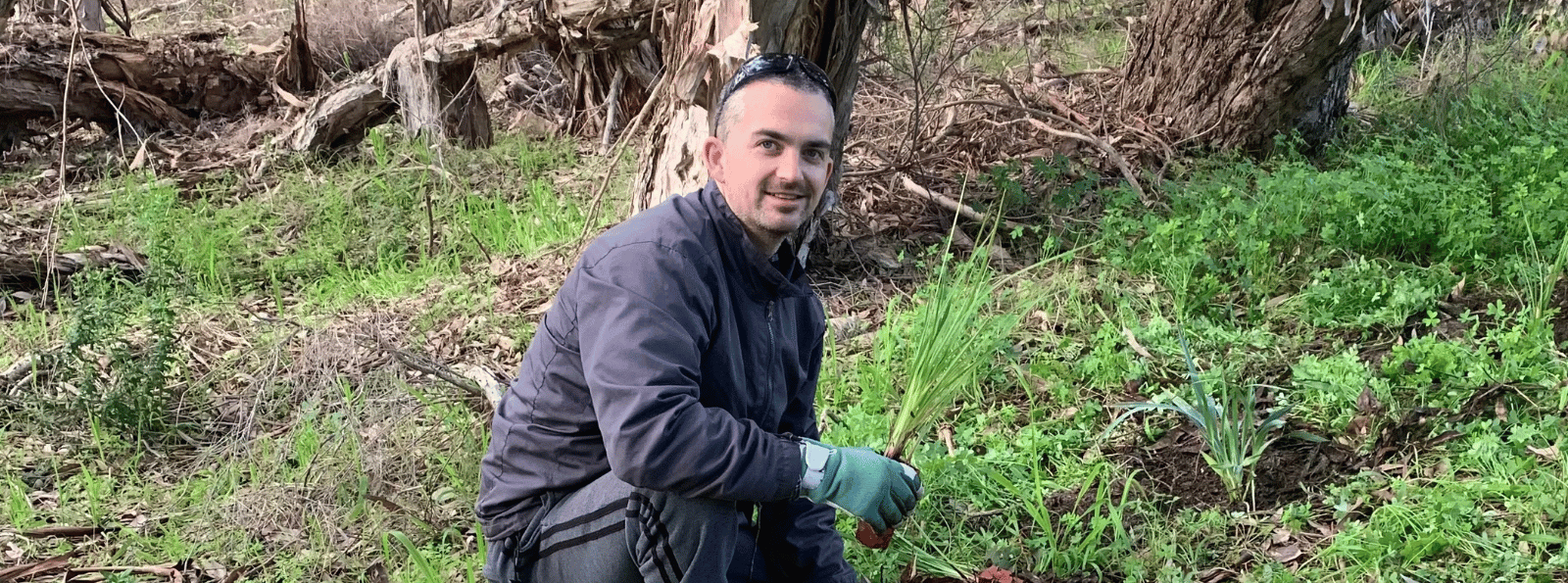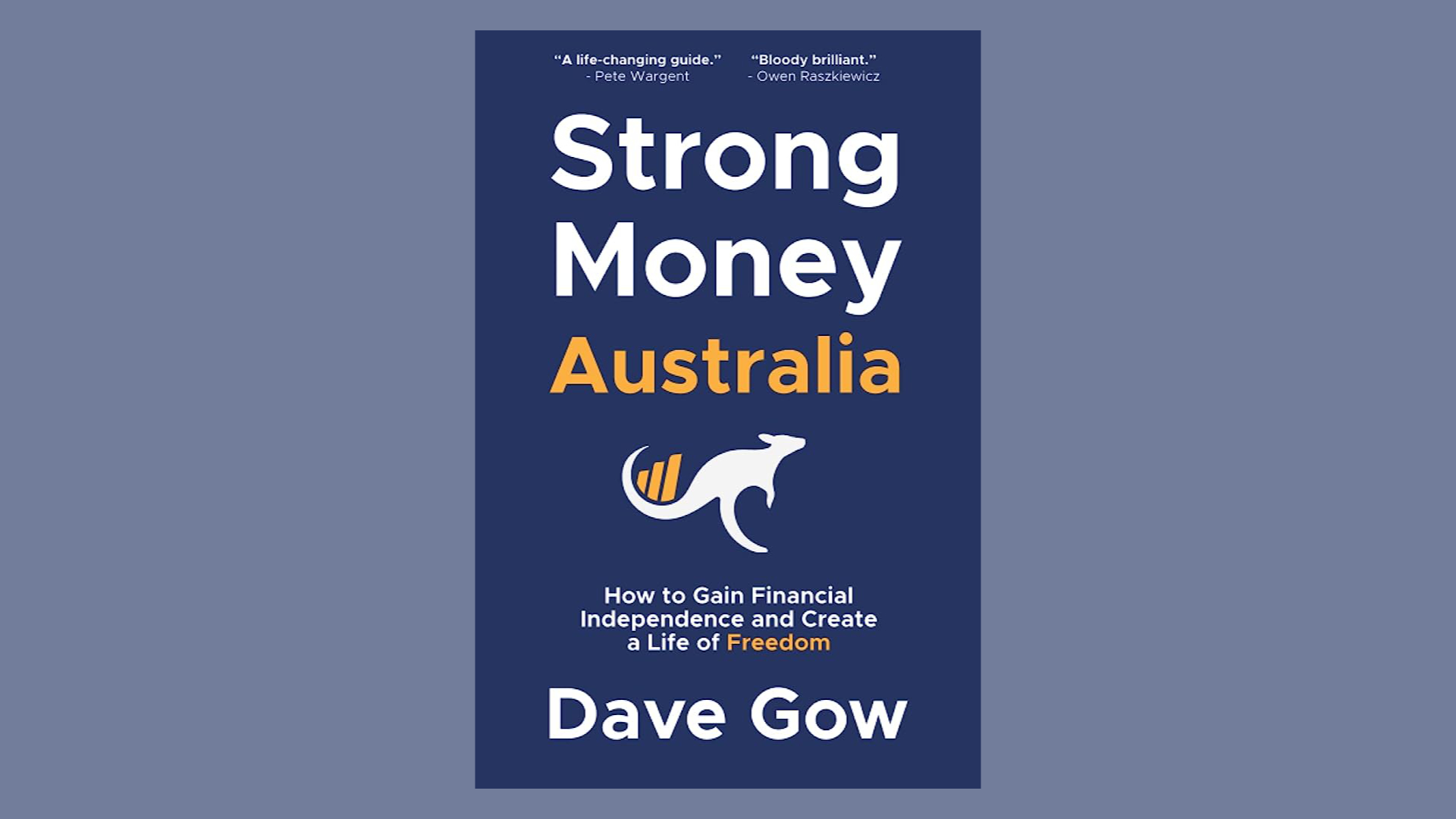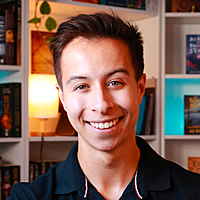Meet Dave: The warehouse worker who retired at 28 by keeping it simple
Dave Gow retired at 28, after just 10 years of working in warehouses around Perth.
He didn’t win the lottery, inherit a fortune, or get lucky with his stock picks. Instead, he invested consistently in ETFs and LICs, and followed a simple set of principles to spend less and invest more, all focusing on optimising his happiness.
He's chronicled his journey on the popular Strong Money Australia blog. Last year, he also published a bestselling book, Strong Money Australia: How to Gain Financial Independence and Create a Life of Freedom which talked about his journey to financial independence.
Today, he joins us to answer questions about his investment approach, why he changed his mind about property, and how he achieved financial freedom at such a young age.
.png)
Livewire investor profile:
- Name: Dave Gow
- Age: 34
- Employment status: Retired.
- Years investing: 15
- Investment goals: freedom and flexibility.
- Products used: Australian and International equities and index funds.
- Biggest portfolio holding: 45% in Vanguard Australian Shares (ASX: VAS)
How old are you and how long have you been investing?
I’m 34, and I’ve been investing for 15 years (if you count a high-interest savings account). But if we’re talking true investments such as property and shares, then 13 years.
What is your objective from investing?
From day one, the entire goal of investing was simply to create enough wealth to live on, so I could then choose how to spend my time. It’s always been about freedom.
Fortunately, through hard work and a bit of luck, I was able to get to that point a few years ago, along with my partner. I quit my full-time warehouse job and never looked back. Now I get to live in a way that’s more meaningful to me, including helping others through my writing, volunteering, and spending more time with my partner and our dog. So my lifestyle is essentially that of someone who’s semi-retired, in that I’m still productive, but it’s optional.
Overall, I’d say I have a high risk tolerance. I used a lot of leverage in property in the past (with mixed success, given we invested a fair bit in Perth), and am currently transitioning towards a 100% equity portfolio while keeping a small amount of cash.
What products do you use to execute your strategy?
Over the years I’ve used property, individual shares, LICs, and ETFs.
These days the portfolio is made up of two ETFs, two REITs and one LIC.
How would you describe your strategy?
In the beginning, the portfolio was 100% property for capital growth. Like most Aussies, that’s the only concept we understood.
But eventually, I grew frustrated with the costs involved and came to realise that residential property is generally pretty lousy for generating income to live on.
I also realised that retiring on rents (or cashing out equity) was never going to work within any reasonable timeframe. That's when I came across the idea of investing in shares for dividend income and the teachings of Peter Thornhill. A light bulb went off when I learned how efficient shares are at generating income (especially in Australia), with none of the costs or headaches associated with property.
To describe the strategy now: it’s essentially a small group of relatively boring and diversified investments, with a focus mostly on the yearly cash flow it spits out over time. The goal is to simply keep adding to our holdings and watch the dividend income grow larger, as we use it to fund our lifestyle and charitable giving.

Could you please share your top 5 holdings in percentage terms and tell me a bit about why you hold each of these positions?
At the moment, the allocation looks like this:
- Vanguard Australian Shares ETF (ASX: VAS) - 45%
- Vanguard MSCI INDEX International Shares ETF (ASX: VGS) - 30%
- QV Equities Limited (ASX: QVE) - 12%
- Charter Hall Long Wale REIT (ASX: CLW) - 8%
- Centuria Office REIT (ASX: COF) - 5%
The first two holdings are simple, low cost and widely diversified index funds. I am working on steadily increasing the global shares portion over time, probably to around 50%. Essentially, I’m betting that Australia and the globe will continue becoming wealthier and that will be reflected in the sharemarket indices over time. I think of these like big building blocks which are 100% connected to the future prosperity of the human race.
I probably have time to try and pick which companies may do the best in the future, but I no longer have an interest in trying to play that game. I did try in the past, with unexciting results. There are just too many people far smarter than me doing it for a living. Plus, I’d much rather do other things with my time than squeeze out an extra 1% in returns (if it even worked!).
But I do also invest in other things where I like the strategy and the income is decent. That’s why I own the value-focused QVE, even though it hasn’t performed well. It may come good, it may not, we’ll have to see.
Other than that, CLW and COF are two real estate trusts which I’ve held for a few years. I bought them after they dropped significantly during covid. Both are trading at significant discounts to their assets (NTA). While commercial property is facing some issues, I’m very reluctant to sell at such large discounts, as I don’t believe the long-term fundamentals look that bad at all.
They each have a diversified portfolio of commercial properties. COF is smaller and is an office-only REIT, whereas CLW is a much larger operator with hundreds of assets across multiple categories - warehouse, office, retail, petrol stations, etc.
Could you tell me about your worst investment?
I could give you a few examples! We’ve held some properties in Perth for more than 10 years, which have had relatively limited growth. Granted, these aren’t losses, but when you account for holding costs, length of time, and the risk of leverage, these have been pretty poor investments.
We also had a few 50% losses when we tried picking individual stocks. Two of those were Retail Food Group (ASX: RFG) and Collection House (now delisted). I think both of those are now either bankrupt or close to it, so thankfully we didn’t hold on!
The sheer number of unexpected problems companies can run into is quite surprising. With an index fund or a diversified LIC, you don’t even see these issues as it’s all absorbed, averaged out by better performers and hidden from you inside the portfolio. That makes it much easier to stomach as you just keep buying and let the long-term winners drive the market higher.
Is there a lesson you’ve learnt as an investor that could potentially help others?
Keep things simple and focus on the big picture.
Far too often we overcomplicate investing when it can all be extremely simple. It’s our minds (and sometimes marketers) that get in the way and convinces us that something more sophisticated must be better.
Warren Buffett says:
“There are no extra points for degree of difficulty.”
It’s so spot on. We often willingly try to play this investing game on ‘hard mode’, thinking we’re smarter than we really are. As if we have some unique view that nobody else has thought of. Or we can read the same news as everyone else, yet somehow know where the market is heading next.
It’s all a big waste of time, energy and money. Not only that, it’s completely unnecessary when it comes to building wealth and achieving your long-term goals. What matters is how repeatable your process is, and how simple your strategy is to follow. Because that’s what will determine whether you’re able to stick with it. And that’s what ensures you reach your goals in the end.
There’s no point in having a strategy that relies on repeated brilliance or luck to be successful. That’s an unreliable way to make progress. It’s far better to play the investing game on ‘easy mode’.
Have a strategy that relies on simple things: a strong savings habit, and continually adding to a portfolio of assets you can own for 50+ years.
If you’re right, and the world becomes a wealthier place over time, as an investor you’ll be very well rewarded. If you’re wrong, then picking better-than-average companies probably isn’t going to help much.
Can you share a personal passion or ambition you have for your future?
I live next to a large lake and wetland system which has a population of snake-necked turtles. Since moving here six years ago and learning of the troubles they face (getting run over by cars, eaten by foxes, attacked by crows), I’ve been helping these turtles in various ways.
One way is helping them safely cross the road when they’re looking for a place to lay their eggs during the laying season. A number of them actually dig holes and bury their eggs in our garden. So we protect these nests with covers so they can’t be predated. Then, during hatching season, we check the nests daily and then release the little hatchlings near the lake. We’ve managed to release over 300 hatchlings in the last six years, and I would like to get that number to 1,000. I find it such a special thing to be a part of, and I think that’d be a cool little milestone to achieve. I’m not sure how many of them survive to adulthood, but I’m sure it’s helping.
I’m passionate about animals and wildlife, so my goal is to be in a position where we can give increasingly large amounts of money to conservation organisations every year. Just as I like to see my investment income growing over time, it’s exciting to think about growing the amount of donations we can do each year too. I’ve started a little chart to record our donations, and although it’s not that big now, I plan to increase it each year for as long as I live.
Want to share your story ?
Livewire is looking for investors who would like to share their stories and investment journeys with our audience. If you are interested, please get in touch via this link
4 topics
6 stocks mentioned


